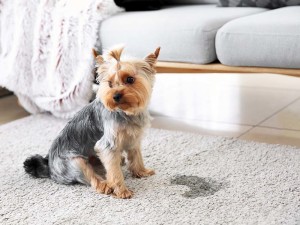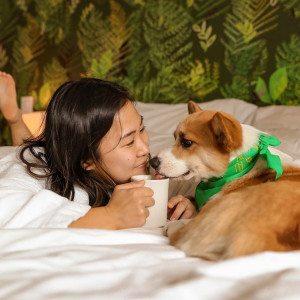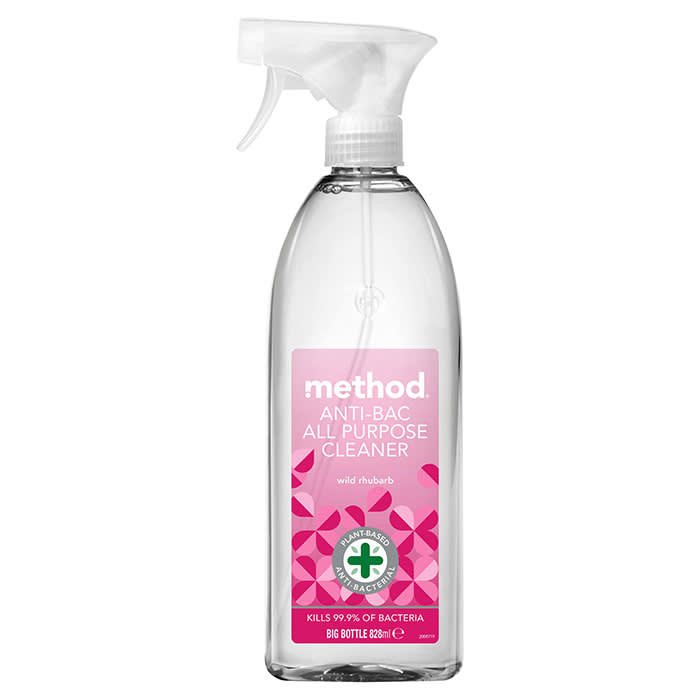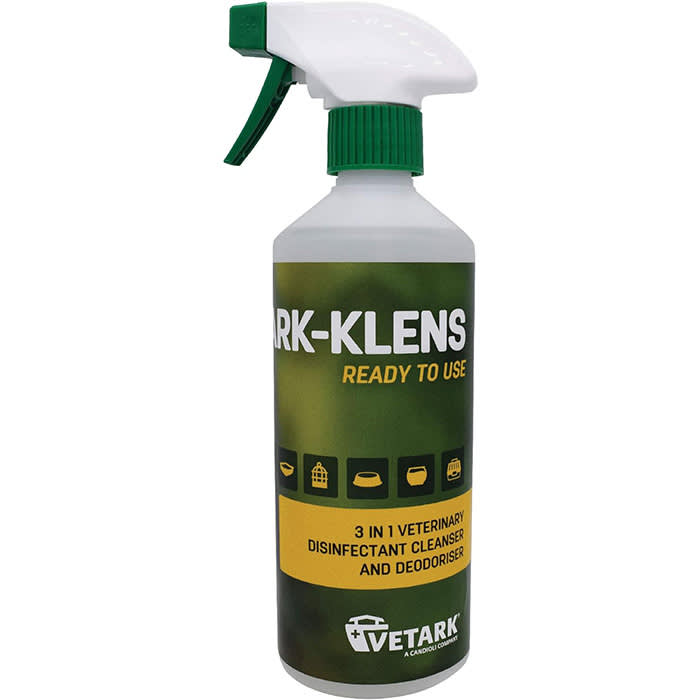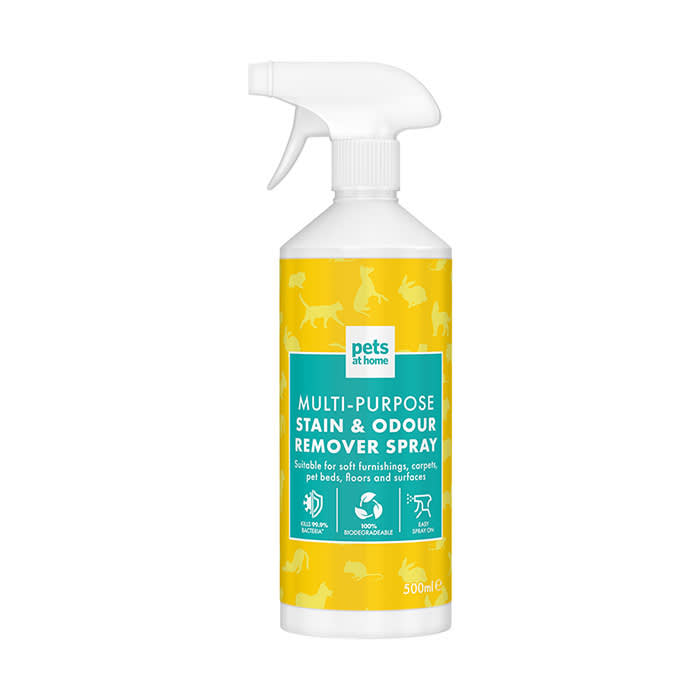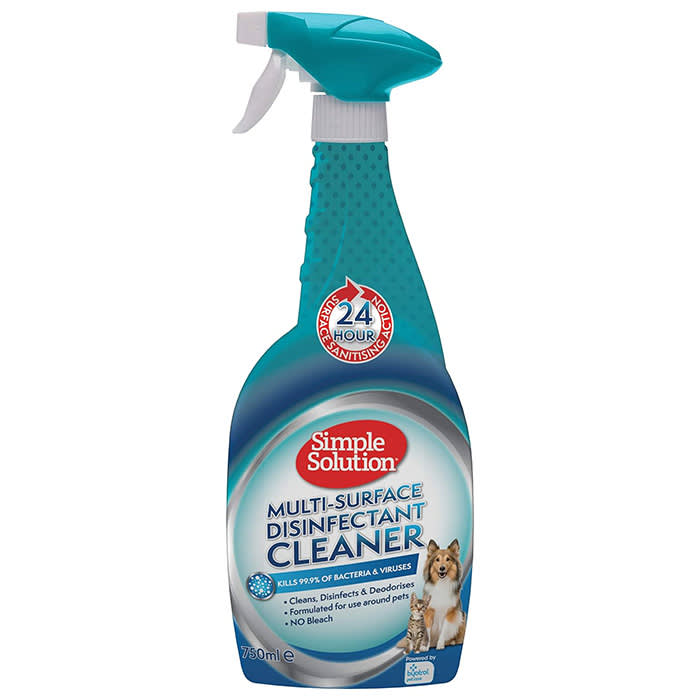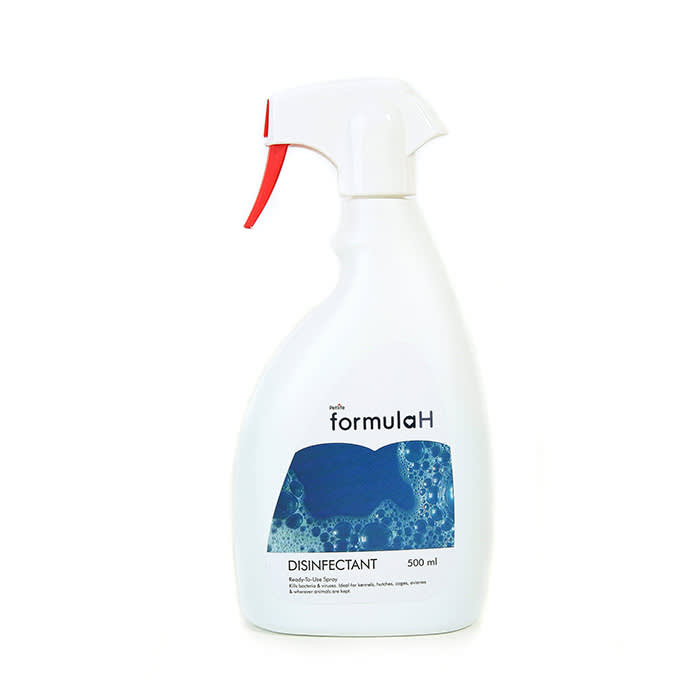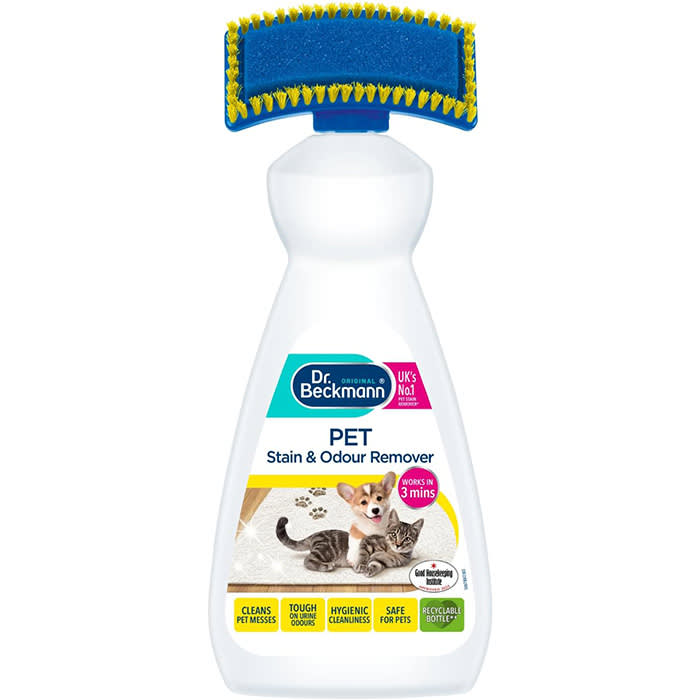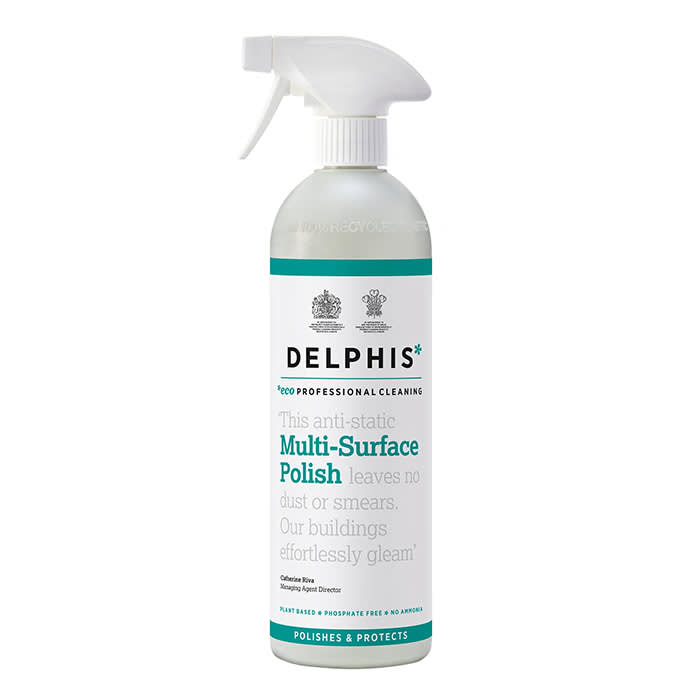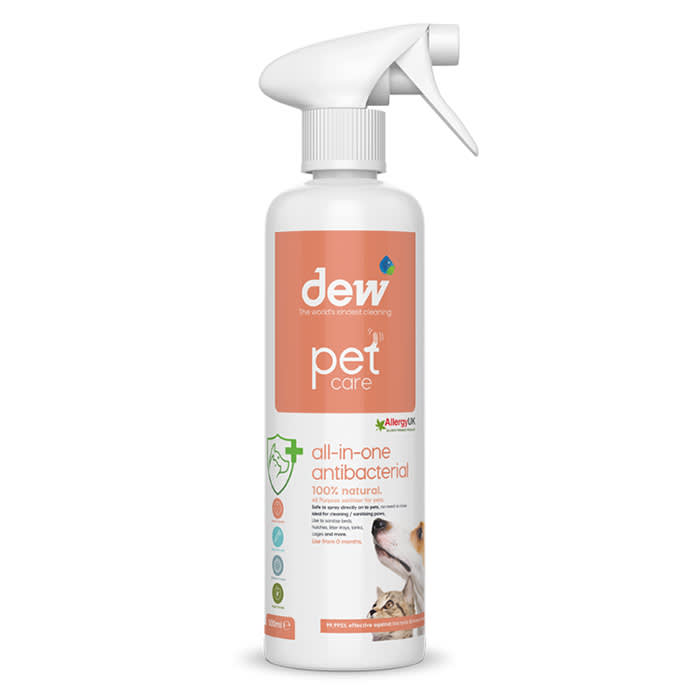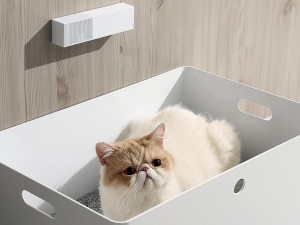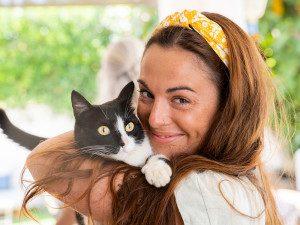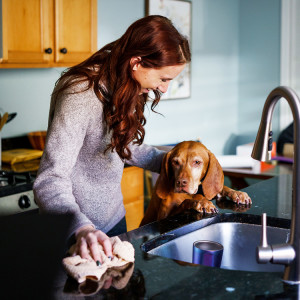Pet-Safe Cleaning Products
Because we have to look after the four-legged family members, too
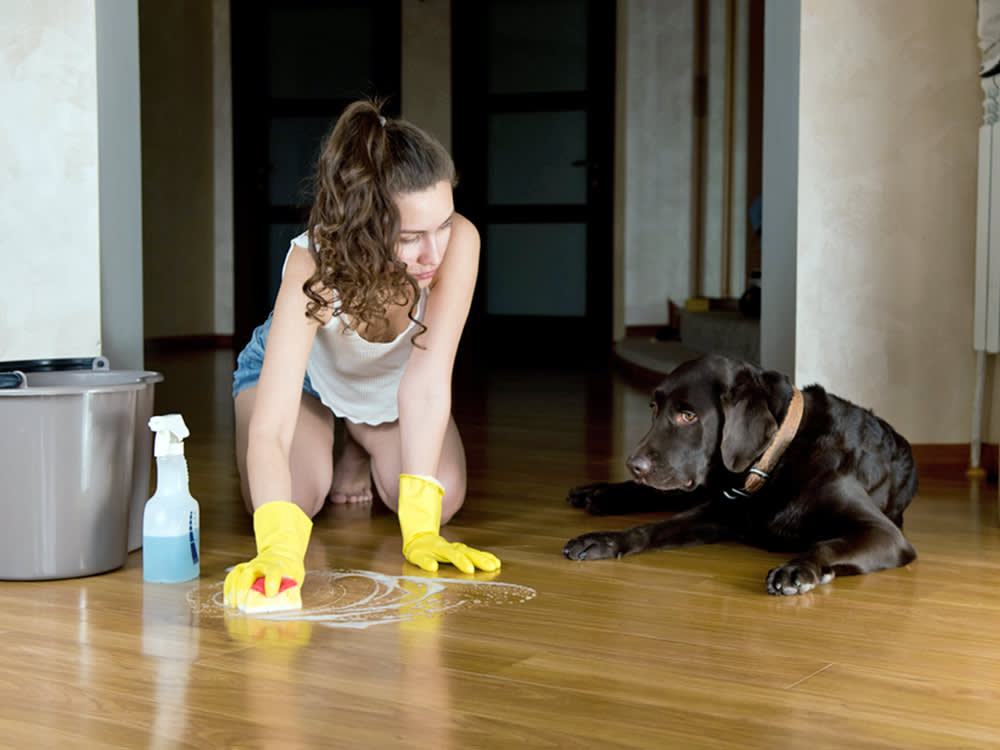
Share Article
In this article:
How to choose pet-safe cleaning products Difference between ‘non-toxic’ and ‘pet-safe’ products Pet-safe vs all natural products Ingredients to avoid What to do if your pet eats cleaning solution Best pet-safe cleaning products
As we enter spring and the days get a little longer, it’s time for many to embark on the annual ritual of spring cleaning. But for pet parents, the task can come with its own set of challenges. With our four-legged friends roaming around the home, it’s crucial to ensure that the products we use to clean our homes are safe for them, as well as humans. With that in mind, let’s delve into the world of pet-safe cleaning products – what to look for, what to avoid, and how to ensure your home is sparkling clean without putting your pets at risk.
Always remember to read the labels and follow the instructions when using cleaning products around your pets.

Get (totally free) deals for food, treats, accessories, tech and way more pet parenting must-haves.
How to choose pet-safe cleaning products
The amount of cleaning products available can be overwhelming, each boasting its own set of promises and benefits. But when it comes to our pets, not all products are created equal. So, how do you navigate the shelves to find the safest options?
First and foremost, educate yourself on the most toxic ingredients to your pets (see below) so that you’re informed and equipped with knowledge when it comes to doing your spring cleaning. Try to look beyond marketing gimmicks, and remember to check what is in each formula.
Look for products specifically labelled as ‘pet-safe’ or ‘pet-friendly’. These are formulated with ingredients that are less likely to cause harm to your pets. Additionally, you can keep an eye out for products that have been certified by reputable organisations such as the RSPCAopens in new tab (Royal Society for the Prevention of Cruelty to Animals). These certifications indicate that the product has undergone testing to ensure it is safe for pets.
Are ‘non-toxic’ and ‘pet-safe’ cleaning products the same thing?
While the terms ‘non-toxic’ and ‘pet-safe’ are often used interchangeably, there can be subtle differences between the two. Non-toxic products are those that are formulated without harmful chemicals that can be hazardous to human health when used as directed, but they may still contain ingredients that could be harmful to pets if ingested in large quantities. However, what’s safe for humans may not be safe for our pets.
Pet-safe cleaning products, on the other hand, are specifically designed to be safe for use around animals. This means that not only are they free from toxic chemicals, but they also avoid ingredients that could be harmful if ingested or inhaled by pets, even accidentally.
Does pet-safe have to mean all natural?
While many pet parents prefer to use all-natural cleaning products, it’s essential to remember that not all synthetic ingredients are harmful to pets. The key is to look for products that have been specifically formulated and tested for pet safety, regardless of whether they contain natural or synthetic ingredients.
Additionally, just because a product is ‘all natural’, doesn’t mean that it is safe for pets. In fact, some ‘all-natural’ products can contain essential oils, most of which are poisonous to catsopens in new tab, and some of which, such as tea tree and pine oil, are toxic to dogsopens in new tab.
What ingredients to avoid for a pet-safe cleaning product
When choosing a pet-safe cleaning product, there are a few key ingredients to avoid. These include:
Bleach: while it might be a powerful disinfectant, bleach can be extremely toxic to petsopens in new tab if ingested or inhaled. Look for bleach-free alternatives for a safer clean.
Ammonia: another common ingredient in household cleaners, ammonia can cause irritationopens in new tab to pets’ eyes, nose and throat. Opt for ammonia-free products to protect your pets.
Phthalates: these chemicals, often found in fragranced products, have been linked to kidney, liver and reproductive issuesopens in new tab in pets. Choose unscented or naturally fragranced cleaners to minimise the risk.
Phenols: found in some disinfectants and air fresheners, phenols can be toxic to petsopens in new tab if ingested or inhaled. Stick to phenol-free products for a safer home environment.
What to do if your pet ingests a cleaning solution
If you suspect that your pet has ingested a cleaning product, it’s essential to act quickly. First, remove your pet from the area and try to determine what they’ve ingested. Check the label of the cleaning product for any warning signs or instructions in case of accidental ingestion and then contact your vet or the Animal PoisonLine opens in new tab immediately for guidance (£35-45 per call).
Best pet-safe cleaning products
Our editors (and their pets) picked out these products. They’re always in stock at the time we publish, but there’s a chance they’ll sell out. If you do buy through our links, we may earn a commission.
References:

Orla Pentelow
Orla Pentelow is Kinship UK’s Senior Editor. She has previously written for British Vogue, Bustle, Yahoo and The Telegraph. When not at her desk liking dog videos she’s out and about with her rescue pup, Luna, who works primarily as chief distractor.
Related articles
![]()
5 Litter Box Enclosures That Aren’t Total Eyesores
Keep your cat’s litter box out of sight – but easy to clean
![A tan and white at in a white litter box placed beneath a white, rectangular Petkit Air Purifier affixed to the wall]()
Petkit’s Air Purifier Transformed the Way My Home Smells
The Petkit Pura Air uses an advanced filtration system to keep pet-friendly homes odourless
![Woman holding her black and white cat.]()
The Ultimate Shopping List For Your New Cat
Here are all the new cat essentials you need, recommended by real pet parents
![A woman smiling at her dog while cleaning the kitchen counters with a cloth.]()
5 Cleaning Products Safe for Pets and the Planet
So fresh and so clean
![A woman and a dog laying on a bed of pet hair-resistant bedding.]()
Say Goodbye to Hair of the Dog, At Least Until the Morning
Slashop has created fur-resistant bedding for cleaner sheets and sounder nights
